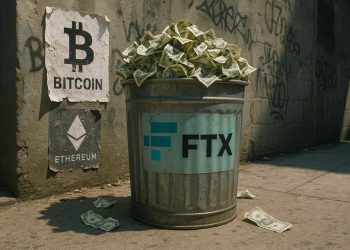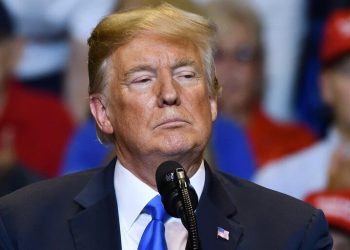To the Editor:
Re “Trump Rolls Out Vast New Arsenal of Global Tariffs” (front page, April 3):
President Trump has called his announcement on Wednesday of a new round of tariffs on our trading partners “our declaration of economic independence.” But he went even further with claims that sound wild, hyperbolic and unbelievable. “April 2, 2025, will forever be remembered as the day American industry was reborn,” he said, “the day America’s destiny was reclaimed, and the day that we began to make America wealthy again — gonna make it wealthy, good and wealthy.”
The president believes obsessively in the merits of tariffs and sees them as his tool to redress years of what he calls our trading partners’ “ripping us off.” If you go beneath the words and listen to his tone, it’s not hard to hear his anger at what he seems to truly believe has been the inequity built into our trade relationships. He doesn’t understand that freer, less fettered trade increases the size of the economic pie for all of us to share, ultimately making our slice larger.
Experts say that his tariffs, along with the virtually obligatory retaliatory tariffs other countries will impose on our goods, will cost consumers thousands of dollars in purchasing power and effectively act as a kind of tax on us, the American people.
Mr. President, while we dearly hope that your view is correct, the experts, and our own common sense, suggest that you are wrong.
Ken Derow
Swarthmore, Pa.
To the Editor:
President Trump has used the National Emergency Act as an excuse for the bizarre tariffs he has enacted. The only national emergency we face is his presidency, enabled by a spineless Republican Congress and a billionaire puppeteer. Congress has rolled over and allowed the president to usurp many of its constitutionally designated powers, including the power to impose tariffs.
The president inherited one of the strongest economies in the world, and he has begun to either systematically or whimsically destroy it, disrupting the global economy in the process.
Nina Miller
Ithaca, N.Y.
To the Editor:
I own a $15 million apparel private label development and sourcing company based in Connecticut. We have provided apparel to small- and medium-size United States retailers for over 27 years. We sell to our customers on delivered, duty-paid terms. Our manufacturing base includes Mauritius, Vietnam, China and Thailand. The tariffs that are being imposed on products from those countries far, far exceed our profit margins.
With these tariffs, Donald Trump has put my company at risk of bankruptcy and my employees at risk of losing their jobs. What is the point of destroying companies in a manual-labor industry the United States long ago abandoned?
This is not a “liberation,” despite what Mr. Trump has declared — for my business it could be a death sentence.
Dirk Dunlap
New Canaan, Conn.
To the Editor:
Re “Trump Says Global Trade Has Been Cheating the U.S. Is He Right?” (news article, April 3):
In the past quarter-century in the United States, millions of factory workers have lost their jobs. Tens of thousands of factories have closed. We have become dependent on foreign countries for steel, automobiles, electronics and just about everything else. You bet we have been cheated!
I am old enough to remember when this country produced virtually all of its consumer goods, when the middle class was growing and prospering. It’s the middle class that does the work and runs this country, and we’re killing it with globalization.
Pete Drexler
Croton-on-Hudson, N.Y.
To the Editor:
As consumers concerned about inflation, we struggle to understand President Trump’s fixation on tariffs despite clear evidence of their economic harm. While his chaotic governing style suggests a kleptocratic approach, his affinity for tariffs stems from his real estate background rather than economic strategy.
This article quotes Robert D. Atkinson, the president of a Washington think tank, saying Mr. Trump’s indiscriminate use of tariffs “makes no sense.” However, the president likely views tariffs as he did licensing fees in his business: low-risk, high-reward revenue generators. Just as companies once paid to use his brand, he assumes that other nations should pay for access to U.S. markets.
His thinking is deeply flawed. Unlike voluntary brand licensing, tariffs are imposed taxes that raise consumer costs and provoke retaliation. Mr. Trump’s belief that the American brand carries automatic leverage ignores economic fundamentals, making tariffs a self-defeating policy rather than a sound fiscal strategy.
George M. Langford
Falmouth, Mass.
#Opinion #Trumps #Tariffs #Anxiety #Assent





















